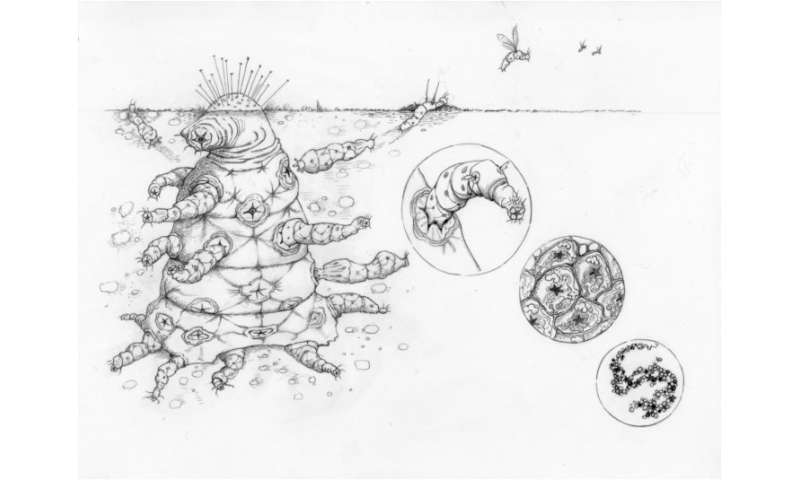Best of Last Week – Aliens may look like us, risk of quantum attacks on Bitcoin and the benefits of strength exercise

(ScienceX)—It was a good week for space research as a team at NASA's Jet Propulsion Laboratory report that a Martian ridge brought out the Curiostiy rover's color talents—special filters on the rover helped identify mineral deposits, offering information key to determining where the rover should move to next. Also, a team at the University of Oxford applied evolutionary theory to organisms that might exist on other planets. In so doing, they found that aliens may be more like us than we think. In somewhat related news, a trio of physicists used data from the groundbreaking gravitational wave experiments and report rapid progress in bounding the speed of gravity—Einstein predicted a century ago that gravity propagates in waves at the speed of light, and the new experiments are bringing closer the possibility of proving it.
In technology news, researchers at Duke and Stanford universities described how a $10 microchip could turn 2-D ultrasound machines to 3-D imaging devices. And researchers with MIT, Adobe Research and the French Alternative Energies and Atomic Energy Commission unveiled a system for performing 'tensor algebra' that offers a 100-fold speed increase over previous software packages when dealing with sparse data applications. Also, an international team of researchers collaborating with Hyperchain released a white paper that outlines the risks that quantum attacks may pose for Bitcoin and other cryptocurrencies.
In other news, a team at the University of Arizona made headlines by announcing that it's mathematically impossible to beat aging, suggesting that work to prevent the process is moot. Also making headlines, an international team of researchers announced that they had discovered a hidden compartment in Egypt's Great Pyramid—the first new finding in the pyramid in hundreds of years. And a team at the University of Connecticut found evidence suggesting that bacterial fats, not dietary ones, may deserve the blame for heart disease—which helps explain why many people on lean diets still have heart attacks.
And finally, if you are someone trying to stay healthy by exercising, you might want to take note of a study done by a team at the University of Sydney, they found that strength exercise is as vital as aerobic activities, which means doing sit-ups or pull-ups in addition to running.
© 2017 ScienceX